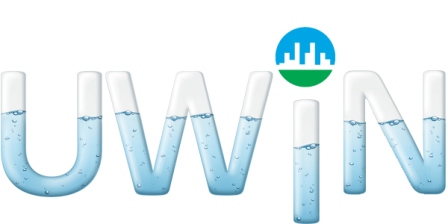Research Projects
Our research activities aim to create knowledge and increase fundamental understanding of challenges to urban water systems and find solutions to enhance preparedness for responding to water crises in regions across the United States. The Network’s research activities are conducted through 21 projects, organized into four integrated Thrusts.
Assessment
Thrust A projects aim to advance fundamental knowledge about the sustainability of urban water systems, by comparing observed trends in the past with alternative future conditions. First, water supply-demand patterns under prevailing and future socioeconomic scenarios are investigated. These land and water use, land cover and socioeconomic scenarios are then used to assess responses and two-way interactions between urban form/development patterns and land-atmospheric processes in urban areas. The relationship between coupled human-natural urban water systems and regional climate, effects on urban heat islands, and the ensuing co-benefits for human health are investigated.
The projects under this thrust are organized by three themes:
Theme A1 projects characterize water supply-demand patterns under future socioeconomic scenarios. Land and water use, land cover and socioeconomic scenarios are used to assess two-way interactions and feedback between urban form and land-atmospheric processes.
- Project A1-1: Quantifying vulnerability, resiliency and adaptability of US urban water supply
- Project A1-2: Effects of changes in climate, demographics and urban form on water supply-demand equilibrium
Theme A2 projects asses the impacts of urban water systems on urban heat islands and the regional climate and the ensuing co-benefits for human health.
- Project A2-1: Land-atmosphere-hydrosphere interactions in urban terrain
- Project A2-2: Projecting future environmental change in urban areas
- Project A2-3: Assessing the thermal comfort implications of water-supported infrastructure
- Project A2-4: Assessment and design of innovative building systems and urban infrastructure
Theme A3 projects examine effects of changes in climate, populations, demographics and policy on hydrologic and ecological processes over the observed past and future assessment periods.
Solutions
Using data, models, and enhanced process understanding from Thrust A, the impacts of innovative technological solutions on sustainability of water systems across ecohydrologic regions are examined under Thrust B. These solutions include: building- to community-scale resource recovery and reuse systems, hybrid centralized-decentralized water infrastructure systems, fit-for-purpose water systems, green infrastructure, sustainable urban drainage networks (SUDS), and resilient floodplains.
Theme 1 focuses on solutions including include building to community-scale resource recovery and reuse systems
- Project B1-1a: Water management solutions to enhance capacity for use of alternative water sources
- Project B1-1b: Urban water infrastructure resilience
- Project B1-2: Lifecycle assessment of urban water systems
Theme 2 focuses on solutions including green infrastructure, sustainable urban drainage networks and floodplains
- Project B2-1: Effects of green infrastructure on urban systems
- Project B2-2a: Flood hydrology and rainfall frequency
- Project B2-2b: Hydrology and hydraulics of urban floodplains
- Project B3-1: Flood Risk to Assets and Socioeconomic Sectors in a Changing World
- Project B4-1: Greywater Reuse: Pathogen Removal by a Membrane Bioreactor
Pathways
Activities under Thrust C explore how cities can intentionally foster the widespread adoption of infrastructure, development patterns, consumer behaviors, and management practices that advance sustainable water management. To understand overcoming barriers to adoption of sustainable solutions, the social and behavioral systems that govern change are investigated. Components of the system include the actors, preferences, policies, institutions and other elements that shape outcomes at multiple scales from the site to the metropolis. Theories of urban change are studied to understand the social networks that shape water systems, the dynamics of household innovation, and the processes of large scale urban change.
A particular emphasis of the projects in Thrust C is understanding best practices for integration of urban planning with urban water management.
- Project C1-1: Understanding adoption of sustainable urban water solutions
- Project C2-1: Homeowner adoption of sustainable urban water solutions
- Project C3-1: Transitioning to socially equitable and environmentally just sustainable urban water systems
- Project C4-1: Financial models and strategies to support the transition to One Water
Integration
Thrust D activities focus on integration of data, models and products from all other themes and projects to facilitate enhanced decision making. This thrust enables synthesizing results from assessment projects under Thrust A, technological solutions under Thrust B, and socioeconomic and management solutions under Thrust C to identify viable options that provide maximum benefits at the system level. A system approach following an urban water sustainability framework is used to explore driving forces, pressures, states, impacts, and responses/solutions. This system approach explores benefits, dis-benefits, co-benefits, and tradeoffs associated with various solutions at various spatial and temporal scales. The synthesis will determine the sustainability metrics/indicators that comprise UWIN Urban Water Sustainability Blueprint.
- Testbed Studies
- Sustainability Indicators
- Synthesis Papers
- Integrated Web-Tool
- Communication Strategies
- Student Success Initiatives
Projects
